Pakui Hardware’s visceral sculptures dissect the future of virtual healthcare
At the Baltic Centre for Contemporary art, Lithuanian artist duo Pakui Hardware examine timely themes of robotic and virtual healthcare in an uncanny new installation
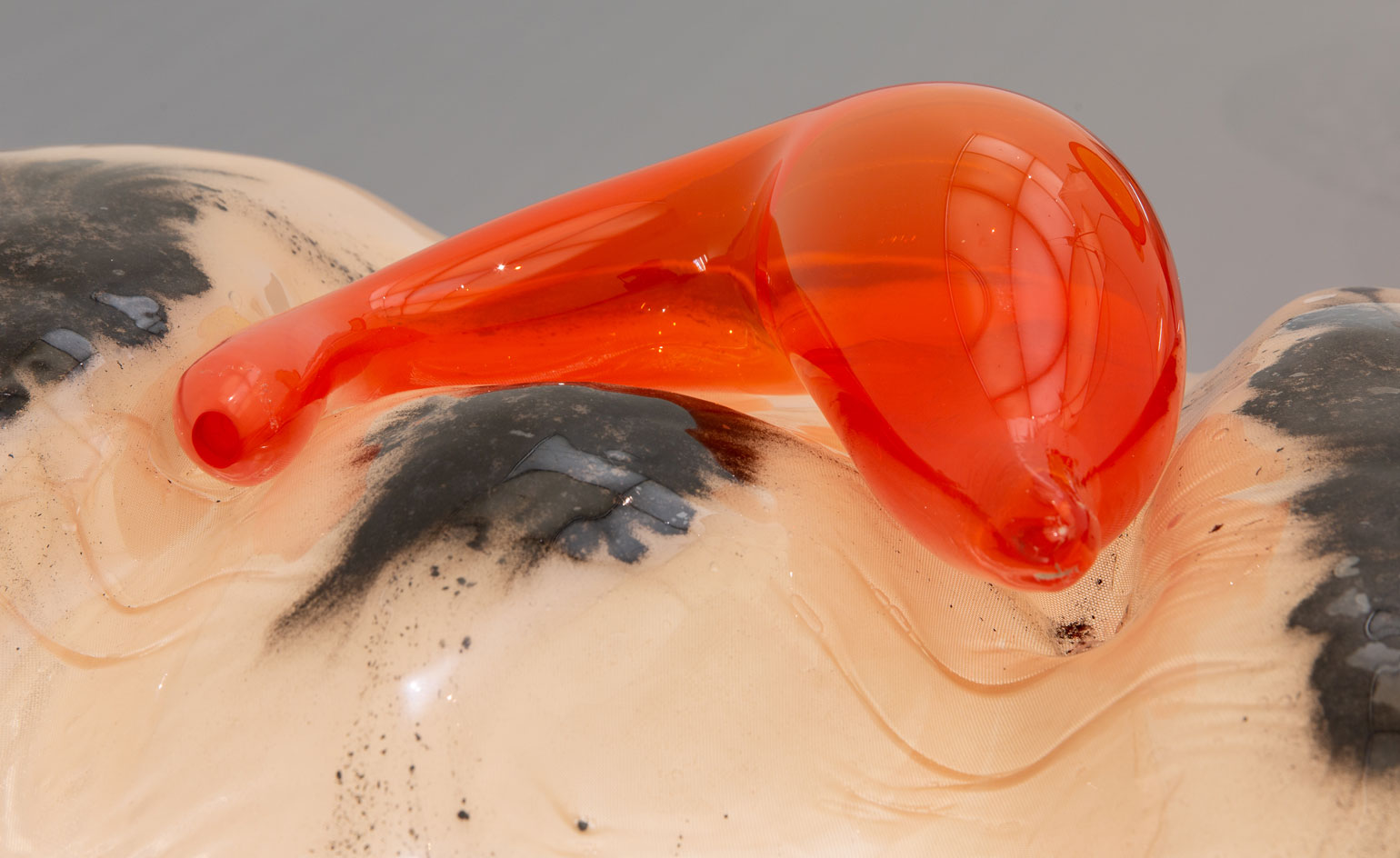
At a time when conversations around the quality and accessibility of healthcare are topping the international conversation, Pakui Hardware’s deep sculptural exploration of robotic and virtual medical care has come at an unnervingly appropriate time.
For their first solo exhibition in the UK, titled ‘Virtual Care’ the Lithuanian artist duo (comprising artists Neringa Cerniauskaite and Ugnius Gelguda) have transformed Baltic’s level two gallery space into an unsettling new world that resembles a clinical surgery suite. Here, all human presence – except for the visitors – has been usurped by technology.
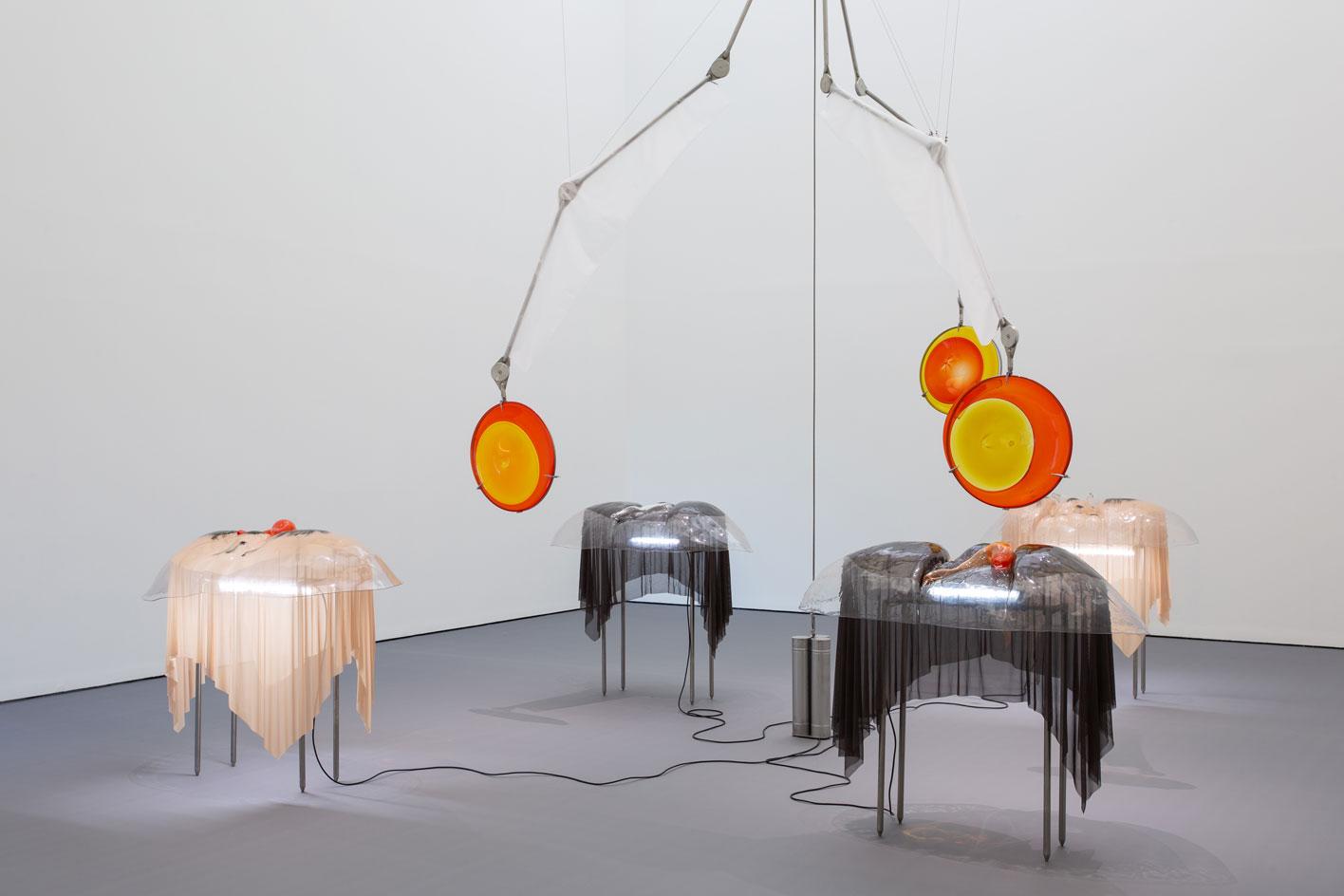
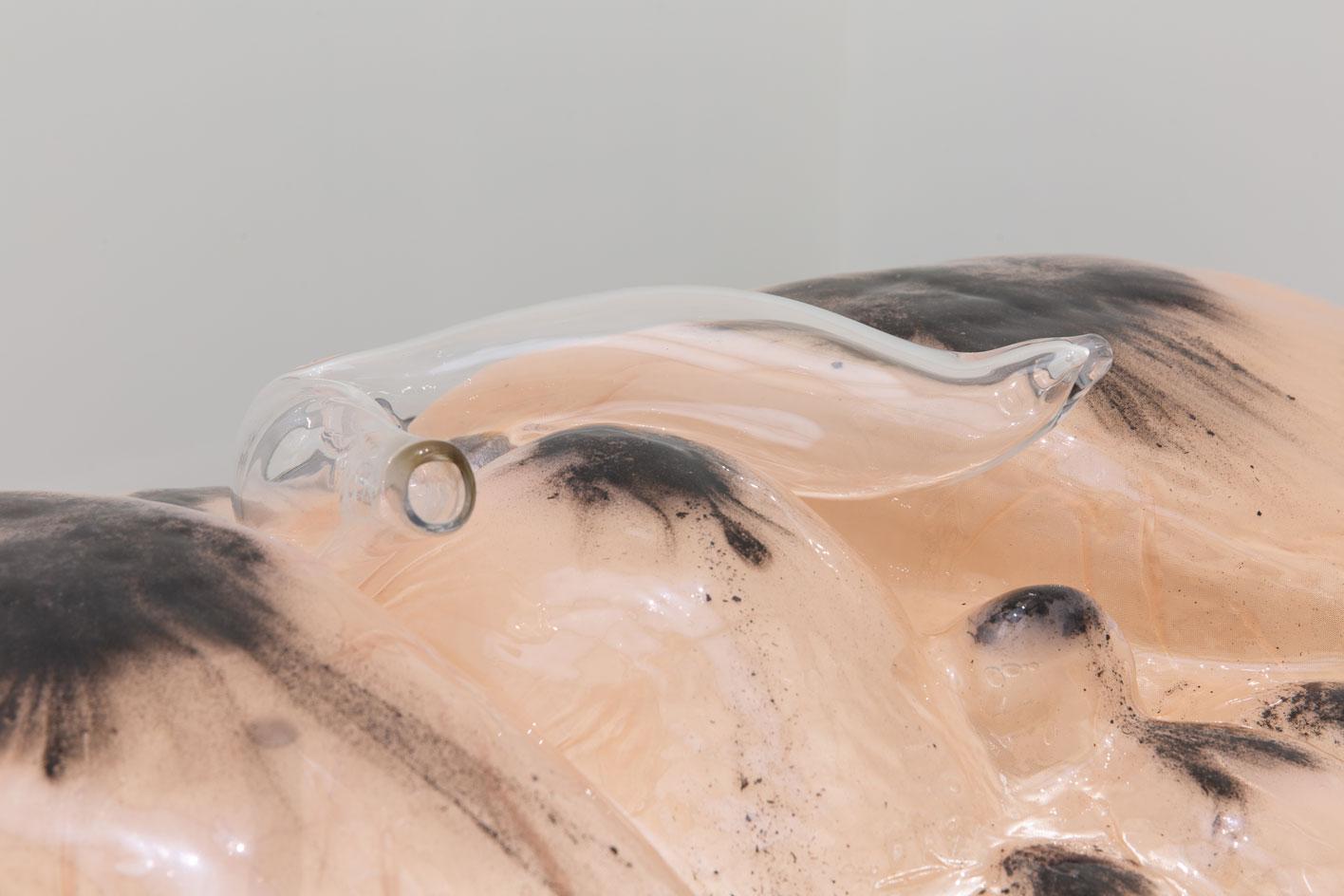
Pakui Hardware ’Virtual Care’ installation view, Baltic Centre for Contemporary Art 2020
More unnerving still are the transparent thermoformed or resin ‘bodies’ abstracted into sculptural biomorphic shapes. These hover somewhere between biology and technology and leave the viewer wondering whether this is a healthcare utopia or dystopia.
In recent years, Pakui Hardware’s work has explored contemporary medicine, data gathering and healthcare exploitation. Through distinctive material concoctions of glass, artificial fur, textiles, leather, chia seeds, soil, silicone, metal and plastics, they imagine possible futures where material limitations are transcended by fragmenting, repurposing, multiplying and recreating human bodies.
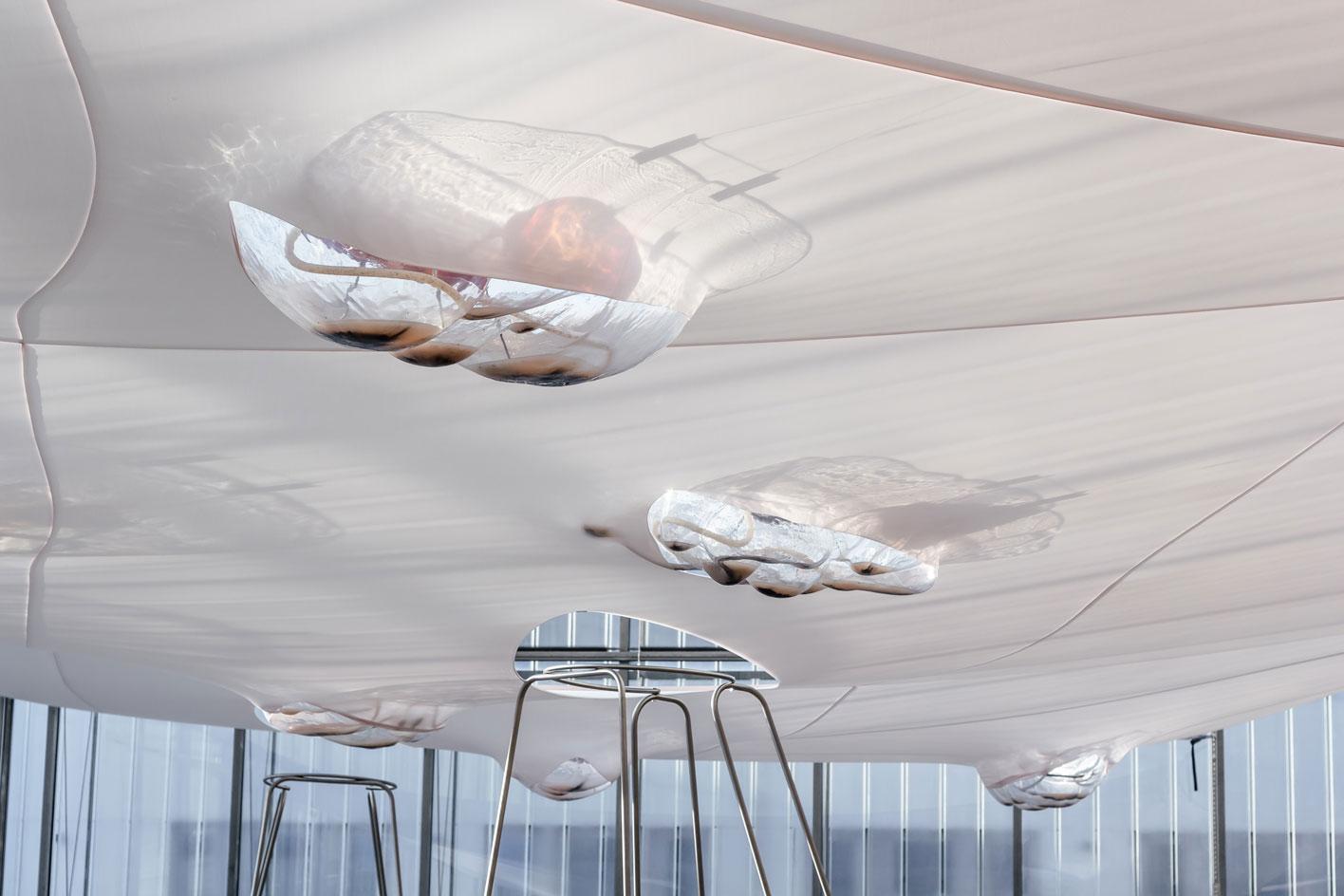
Pakui Hardware, Extrakorporal, 2018. Installation view at Kunstverein Bielefeld, Germany
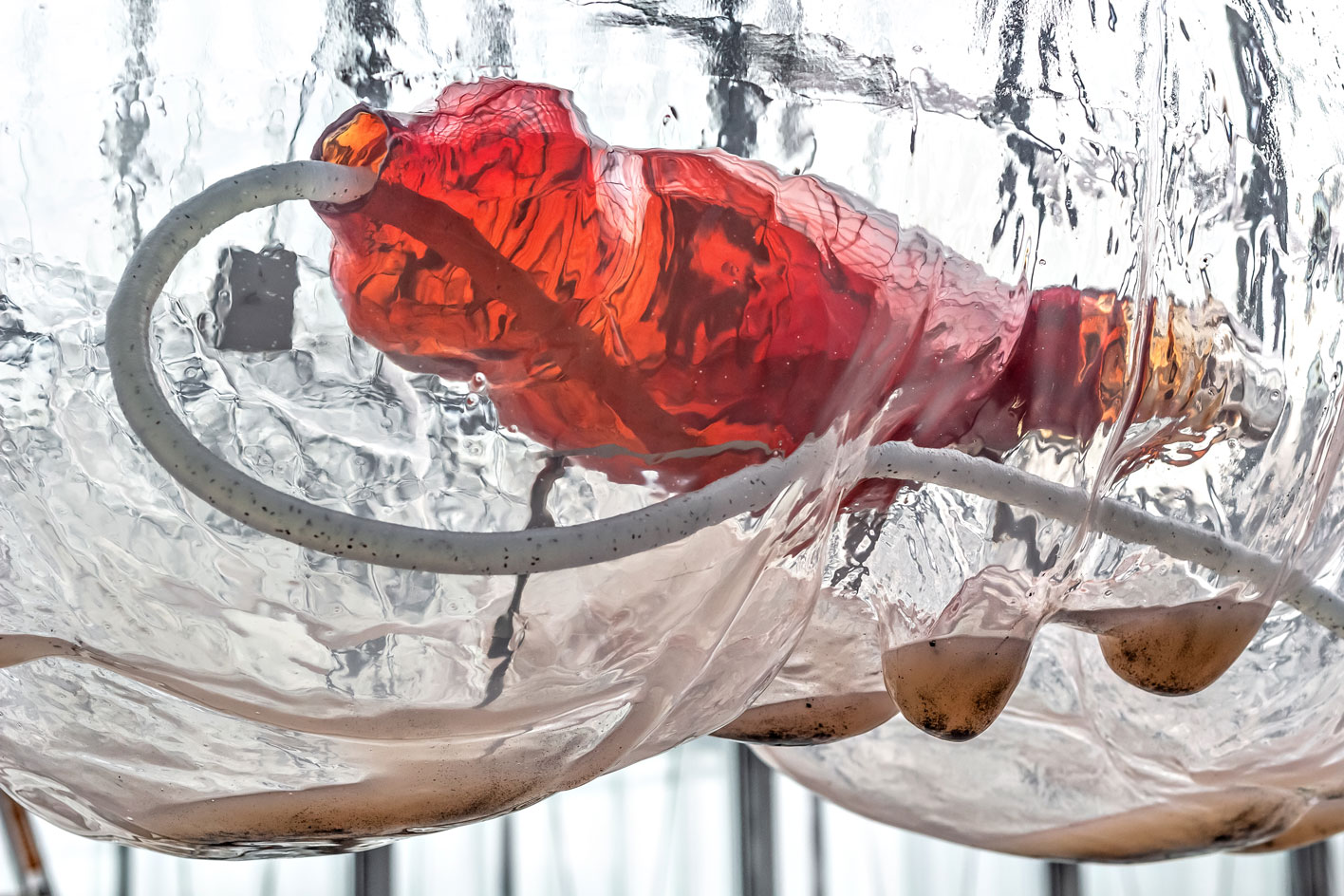
Pakui Hardware, Underbelly, 2019. Installation view at MdbK Leipzig, Germany
Their 2019 installation titled Underbelly in Leipzig’s Museum der Bildenden Künste comprised an unsettling installation resembling organs, that were in fact coloured-glass sculptures and semi-populated petri-dishes that contained chia seeds.
In the Baltic show, glowing orange and yellow lamp sculptures create an air of warmth and care. These are juxtaposed with the comparably alien, hostile coolness of steel arms that make anthropomorphic, and uncanny reference to a surgeon’s hands. Below, a transparent membrane contains what could be organs. Underneath, black and flesh-coloured fabric is draped over invisible forms – the suggestion of a human body, but not quite. What’s absent is as potent as what’s present.
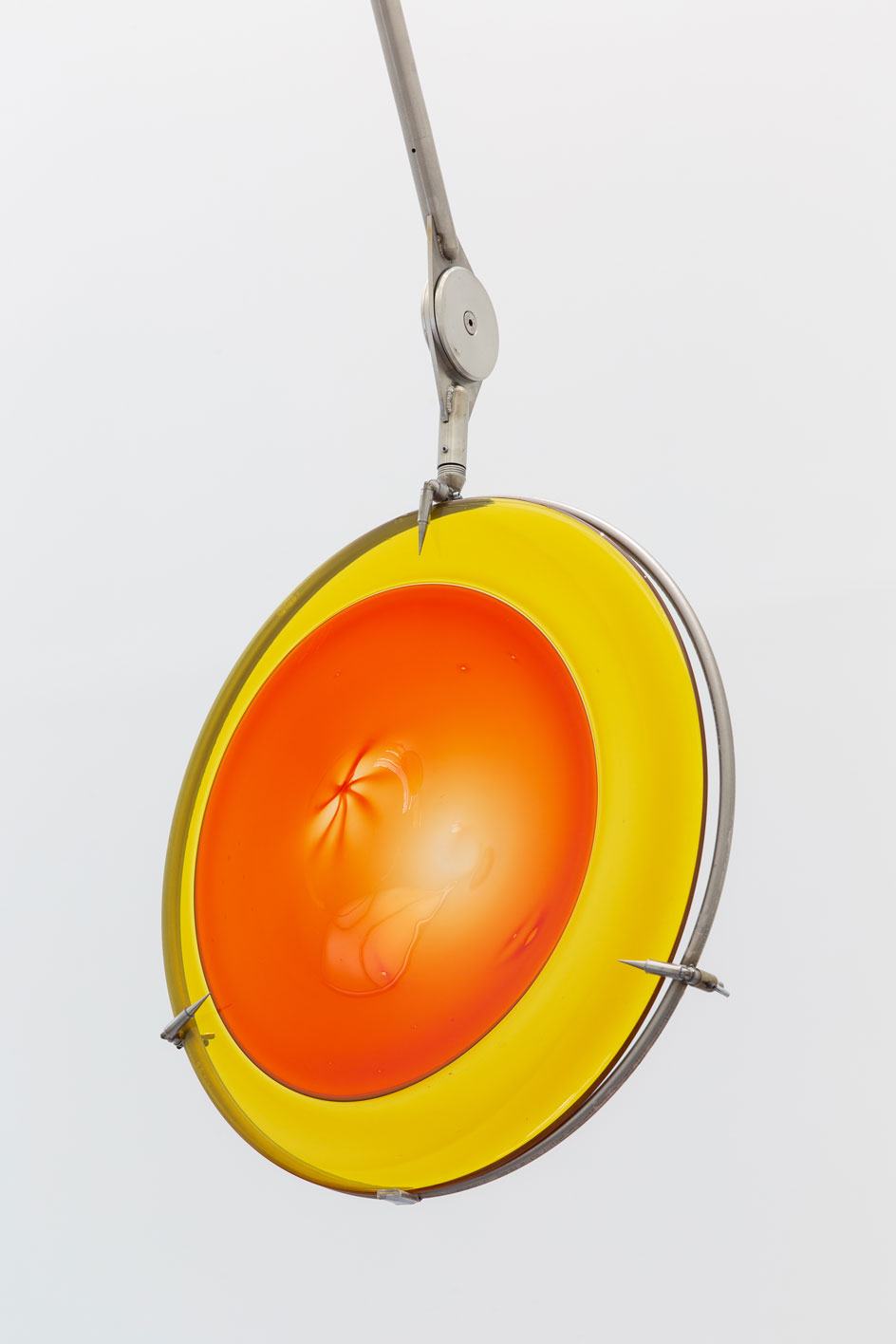
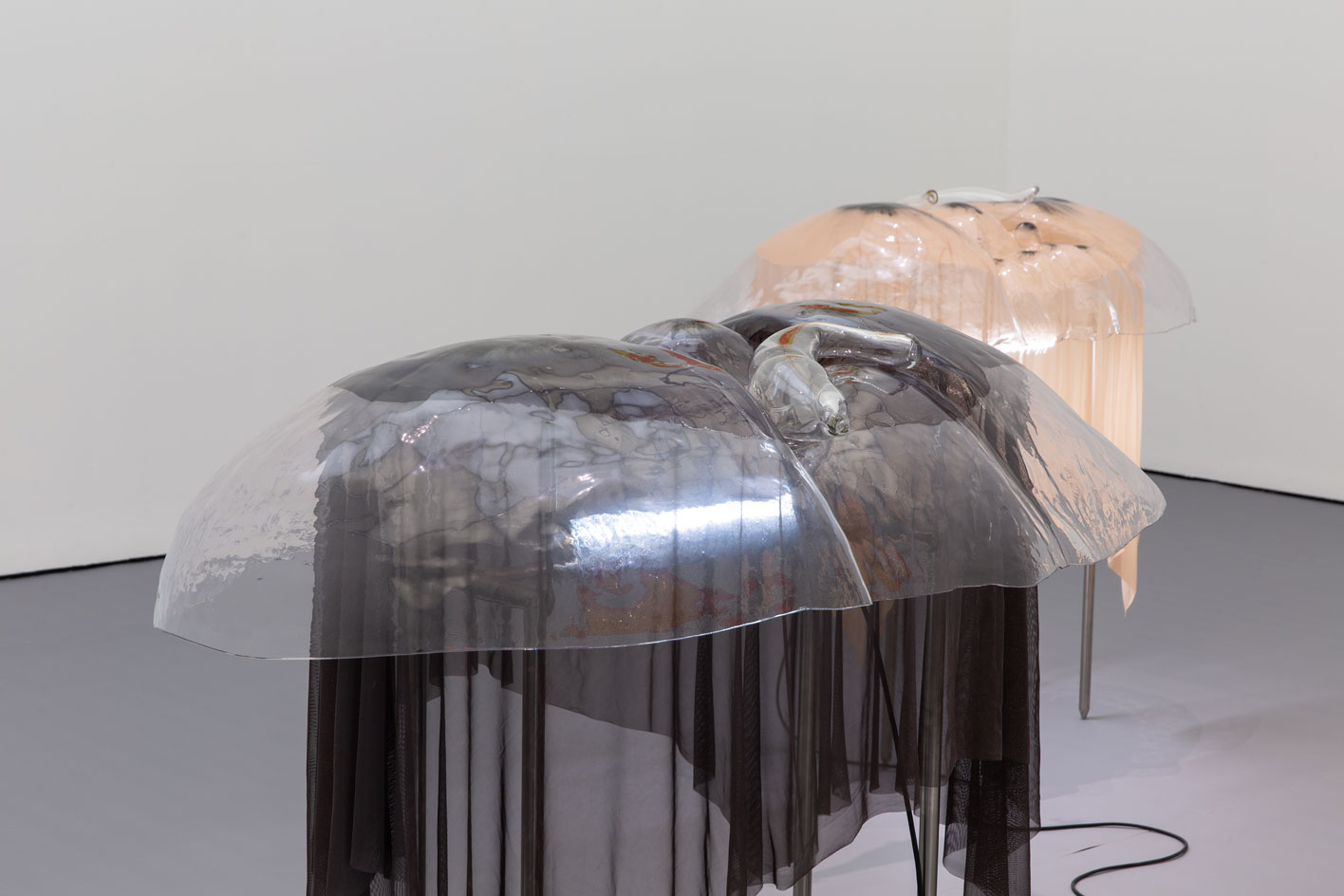
Pakui Hardware ’Virtual Care’ installation view, Baltic Centre for Contemporary Art 2020
These pieces are, in part, inspired by 1970s and 1980s paintings by Lithuanian artist Teresė Rožanskaitė – these ‘bodies’ are traces, shells of ‘flesh’, all dictated by technology.
The duo explore the warmth of the human body, and the cold detachment of technology, and ultimately, how these poles are becoming increasingly entwined. They dredge up all the moral mazes humanity faces, in a fear-mongered future filled with designer babies, gene editing, cloning and brain freezing looms. But Pakui Hardware have not conceived this work as a warning. It’s not threat, but intrigue that meets us at the door. Though this feels like uncharted territory, the questions the duo are exploring have credence in real-world futures.
As healthcare in neoliberal systems for poor, remote and marginalised groups increasingly tops the international agenda, technology can be seen as a possible positive solution. In a world where human intervention can fall short, ‘Virtual Care’ is a vision of post-pandemic healthcare systems, framed as an opportunity to turn the most vulnerable towards the increasingly capable hands of technological care.
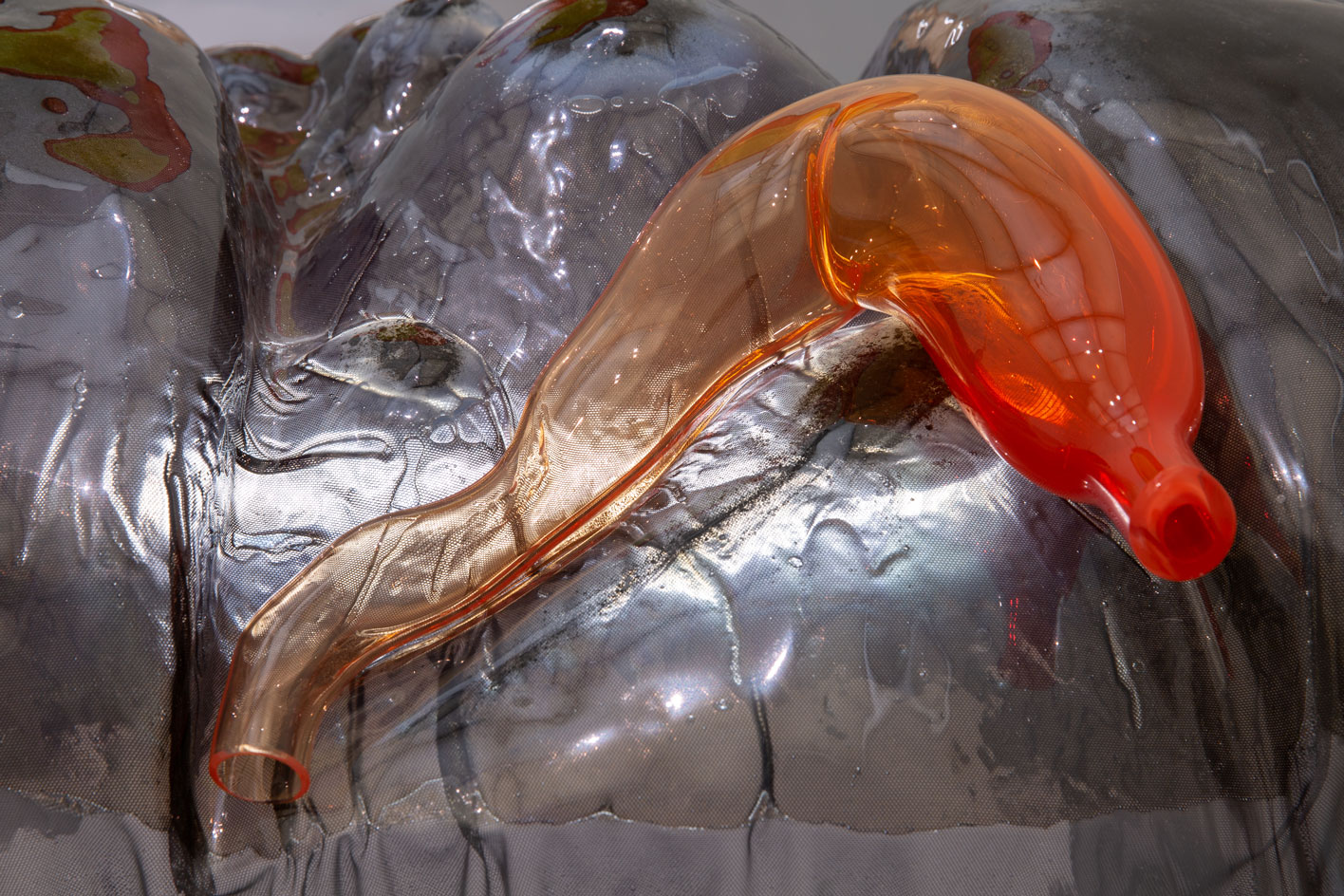
Pakui Hardware ’Virtual Care’ installation view, Baltic Centre for Contemporary Art 2020
INFORMATION
Pakui Hardware, ‘Virtual Care’, until 3 Oct 2021, Baltic Centre for Contemporary Art, baltic.art
ADDRESS
Wallpaper* Newsletter
Receive our daily digest of inspiration, escapism and design stories from around the world direct to your inbox.
S Shore Rd
Gateshead NE8 3BA
Harriet Lloyd-Smith was the Arts Editor of Wallpaper*, responsible for the art pages across digital and print, including profiles, exhibition reviews, and contemporary art collaborations. She started at Wallpaper* in 2017 and has written for leading contemporary art publications, auction houses and arts charities, and lectured on review writing and art journalism. When she’s not writing about art, she’s making her own.
-
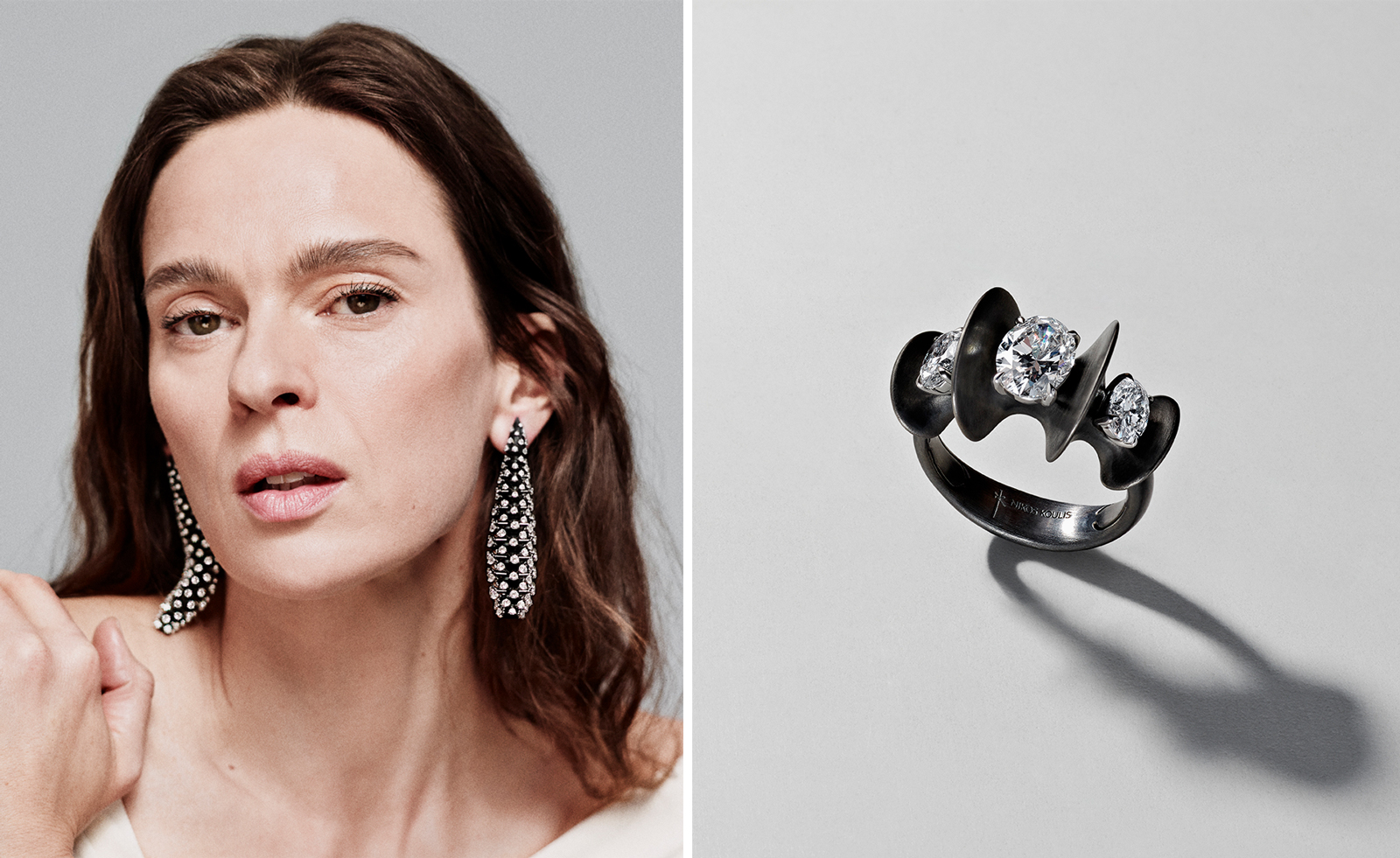 Nikos Koulis brings a cool wearability to high jewellery
Nikos Koulis brings a cool wearability to high jewelleryNikos Koulis experiments with unusual diamond cuts and modern materials in a new collection, ‘Wish’
By Hannah Silver
-
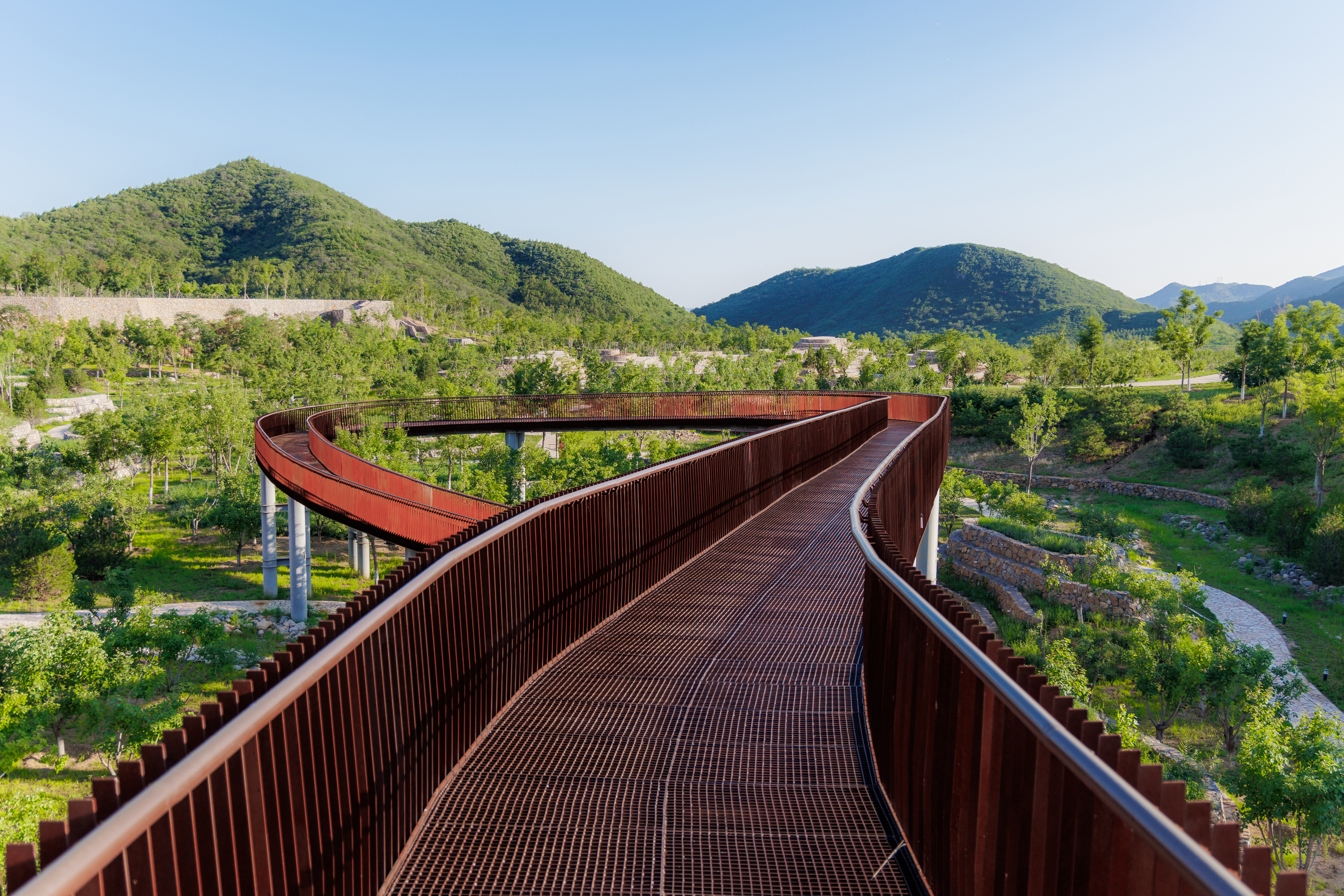 A Xingfa cement factory’s reimagining breathes new life into an abandoned industrial site
A Xingfa cement factory’s reimagining breathes new life into an abandoned industrial siteWe tour the Xingfa cement factory in China, where a redesign by landscape specialist SWA Group completely transforms an old industrial site into a lush park
By Daven Wu
-
 Put these emerging artists on your radar
Put these emerging artists on your radarThis crop of six new talents is poised to shake up the art world. Get to know them now
By Tianna Williams
-
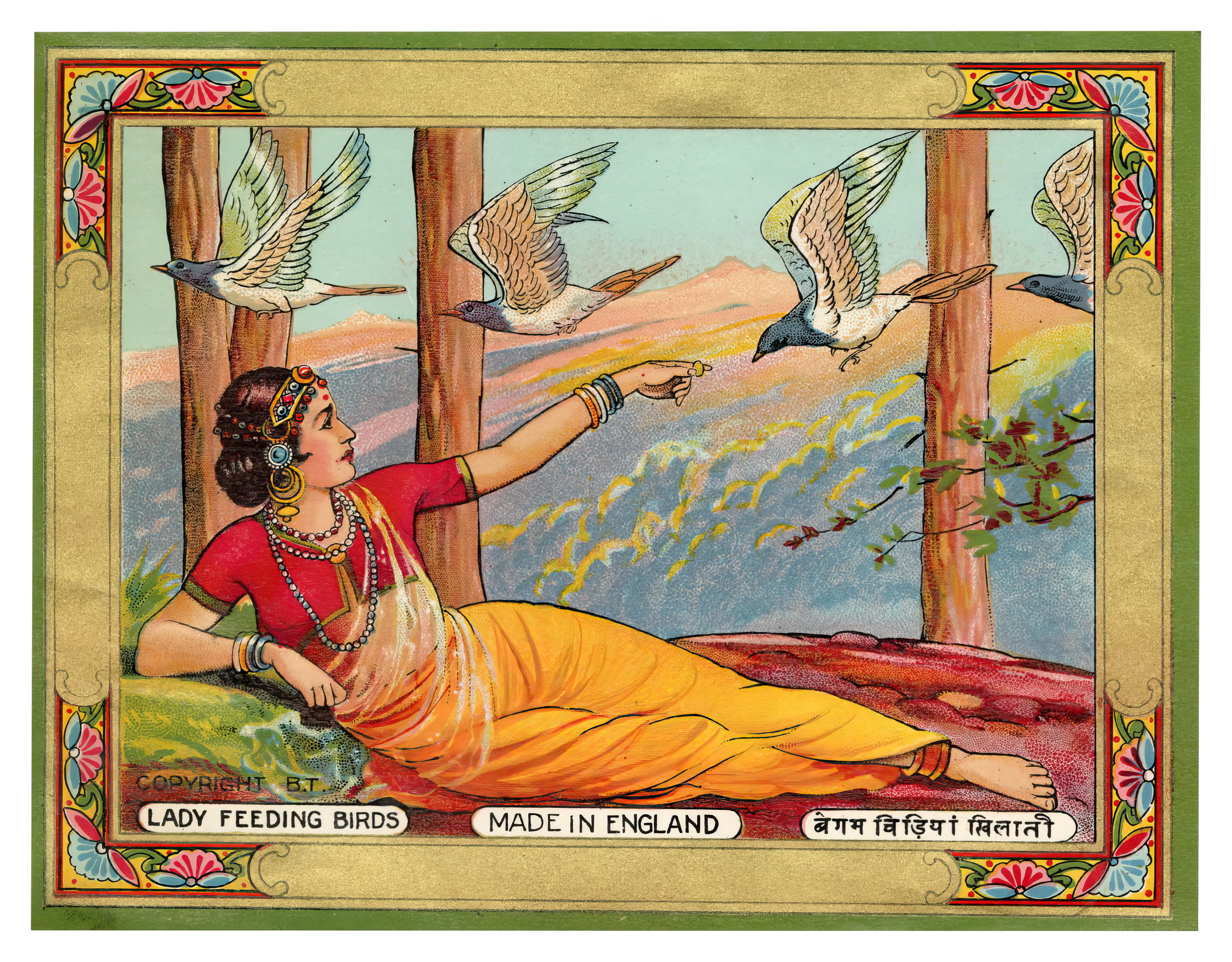 The art of the textile label: how British mill-made cloth sold itself to Indian buyers
The art of the textile label: how British mill-made cloth sold itself to Indian buyersAn exhibition of Indo-British textile labels at the Museum of Art & Photography (MAP) in Bengaluru is a journey through colonial desire and the design of mass persuasion
By Aastha D
-
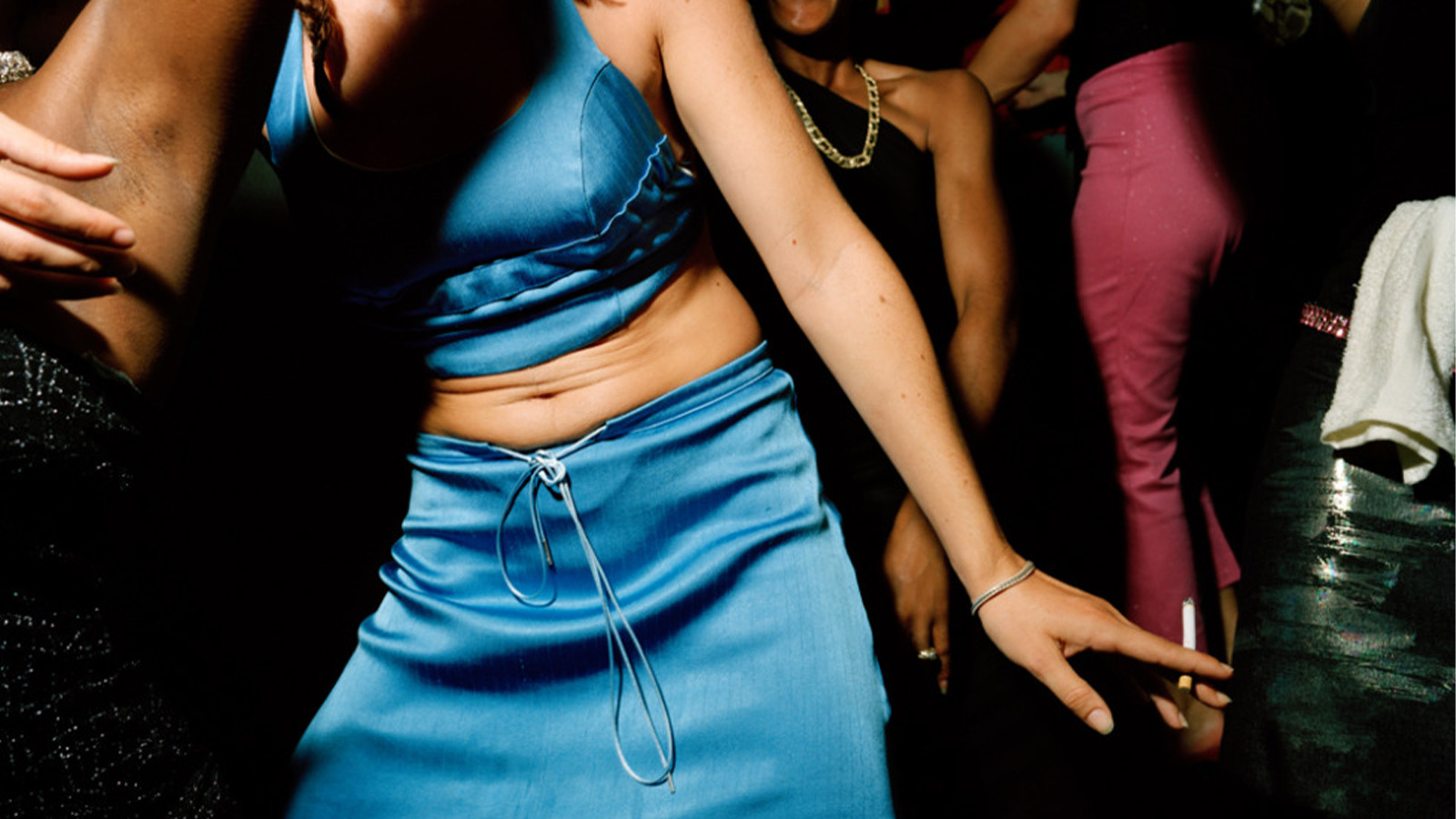 From counter-culture to Northern Soul, these photos chart an intimate history of working-class Britain
From counter-culture to Northern Soul, these photos chart an intimate history of working-class Britain‘After the End of History: British Working Class Photography 1989 – 2024’ is at Edinburgh gallery Stills
By Tianna Williams
-
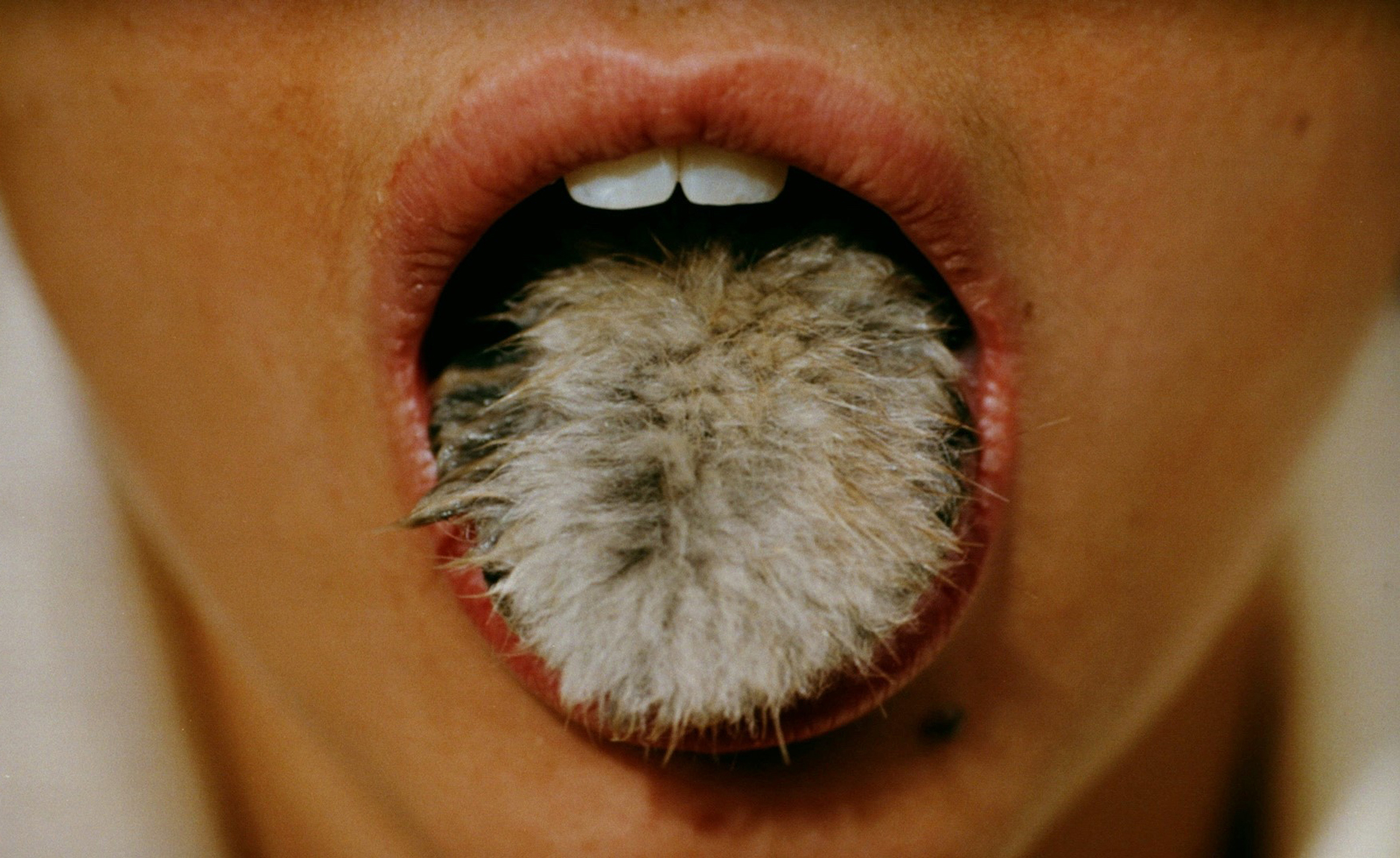 Surrealism as feminist resistance: artists against fascism in Leeds
Surrealism as feminist resistance: artists against fascism in Leeds‘The Traumatic Surreal’ at the Henry Moore Institute, unpacks the generational trauma left by Nazism for postwar women
By Katie Tobin
-
 From activism and capitalism to club culture and subculture, a new exhibition offers a snapshot of 1980s Britain
From activism and capitalism to club culture and subculture, a new exhibition offers a snapshot of 1980s BritainThe turbulence of a colourful decade, as seen through the lens of a diverse community of photographers, collectives and publications, is on show at Tate Britain until May 2025
By Anne Soward
-
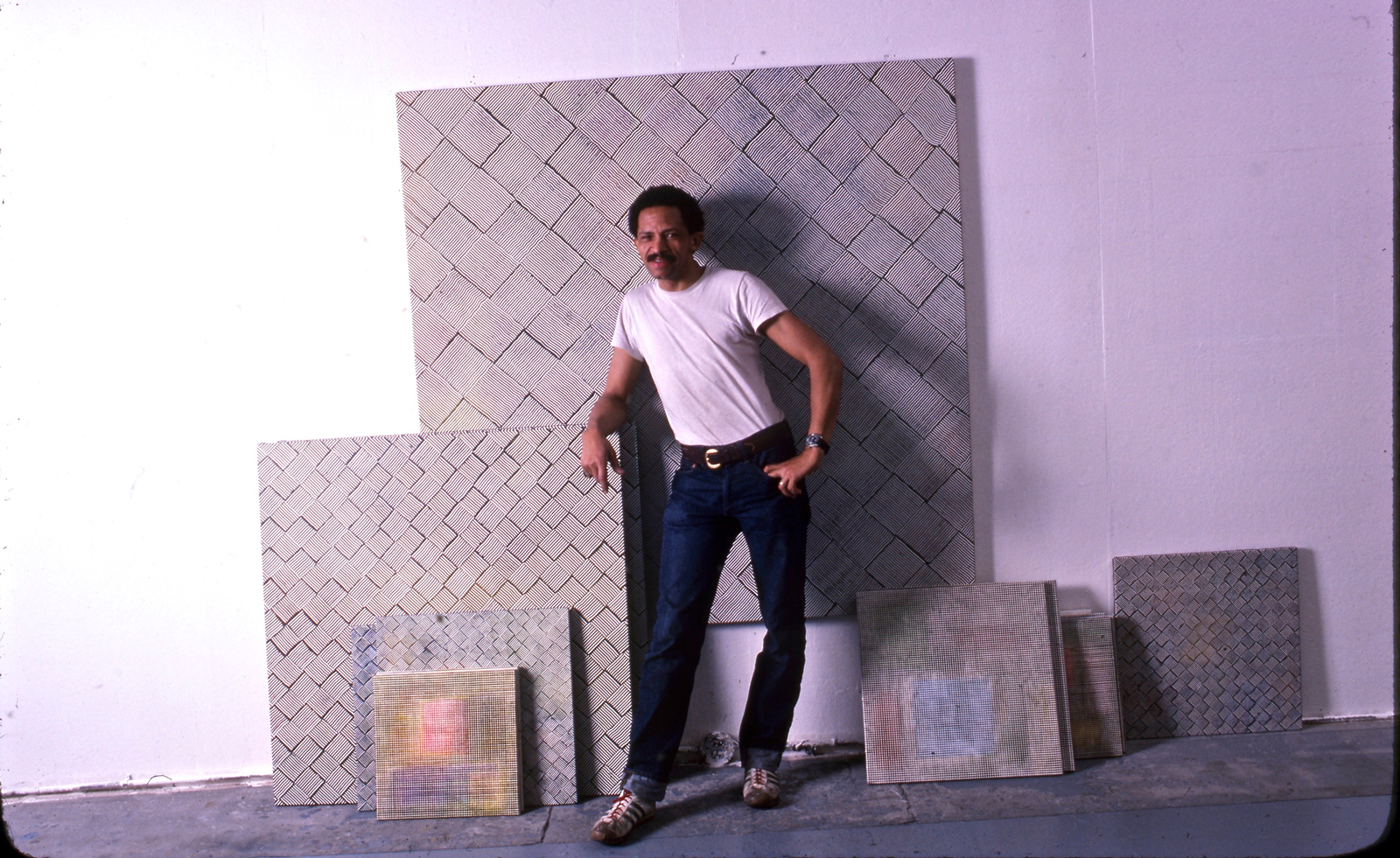 Inside Jack Whitten’s contribution to American contemporary art
Inside Jack Whitten’s contribution to American contemporary artAs Jack Whitten exhibition ‘Speedchaser’ opens at Hauser & Wirth, London, and before a major retrospective at MoMA opens next year, we explore the American artist's impact
By Finn Blythe
-
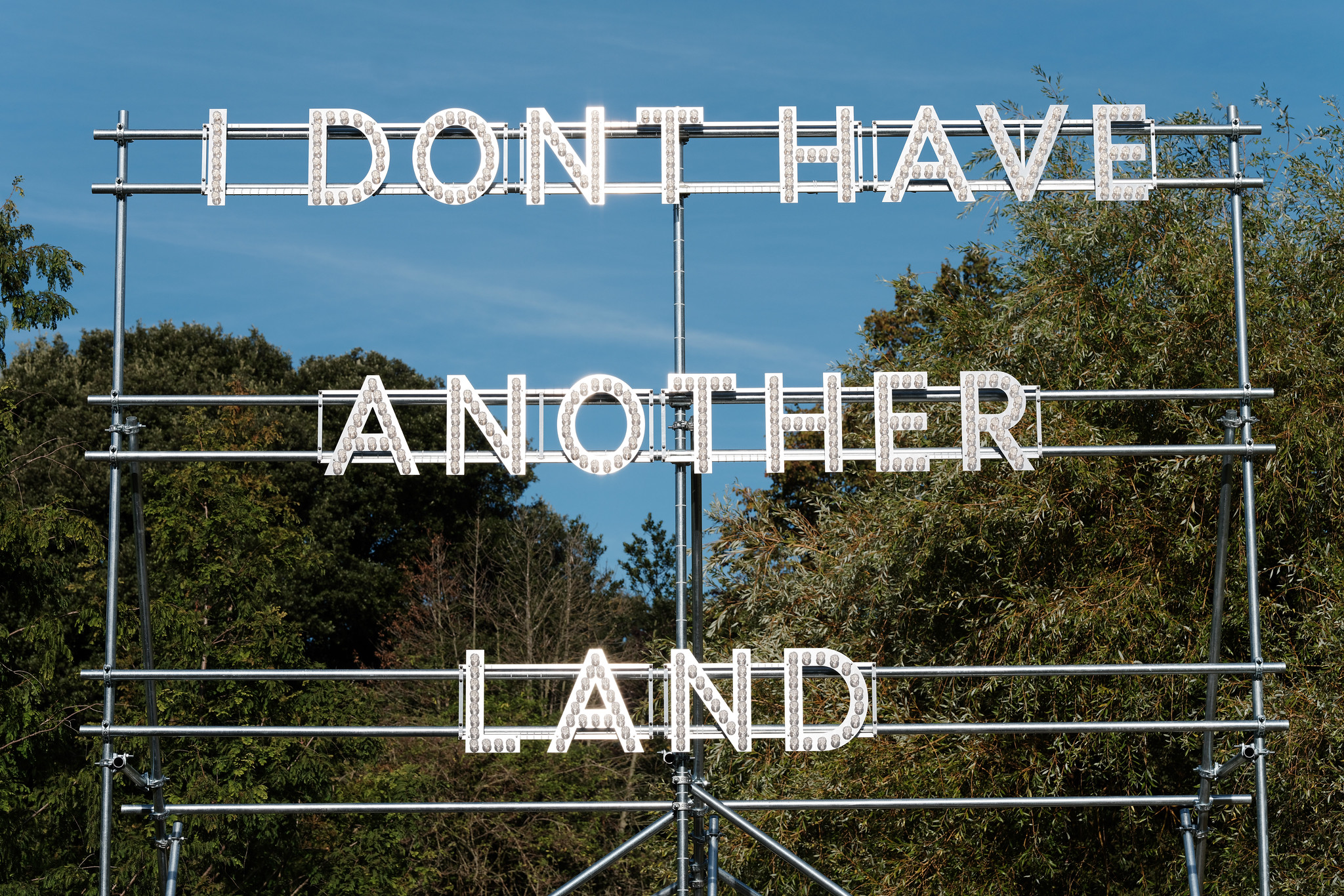 Frieze Sculpture takes over Regent’s Park
Frieze Sculpture takes over Regent’s ParkTwenty-two international artists turn the English gardens into a dream-like landscape and remind us of our inextricable connection to the natural world
By Smilian Cibic
-
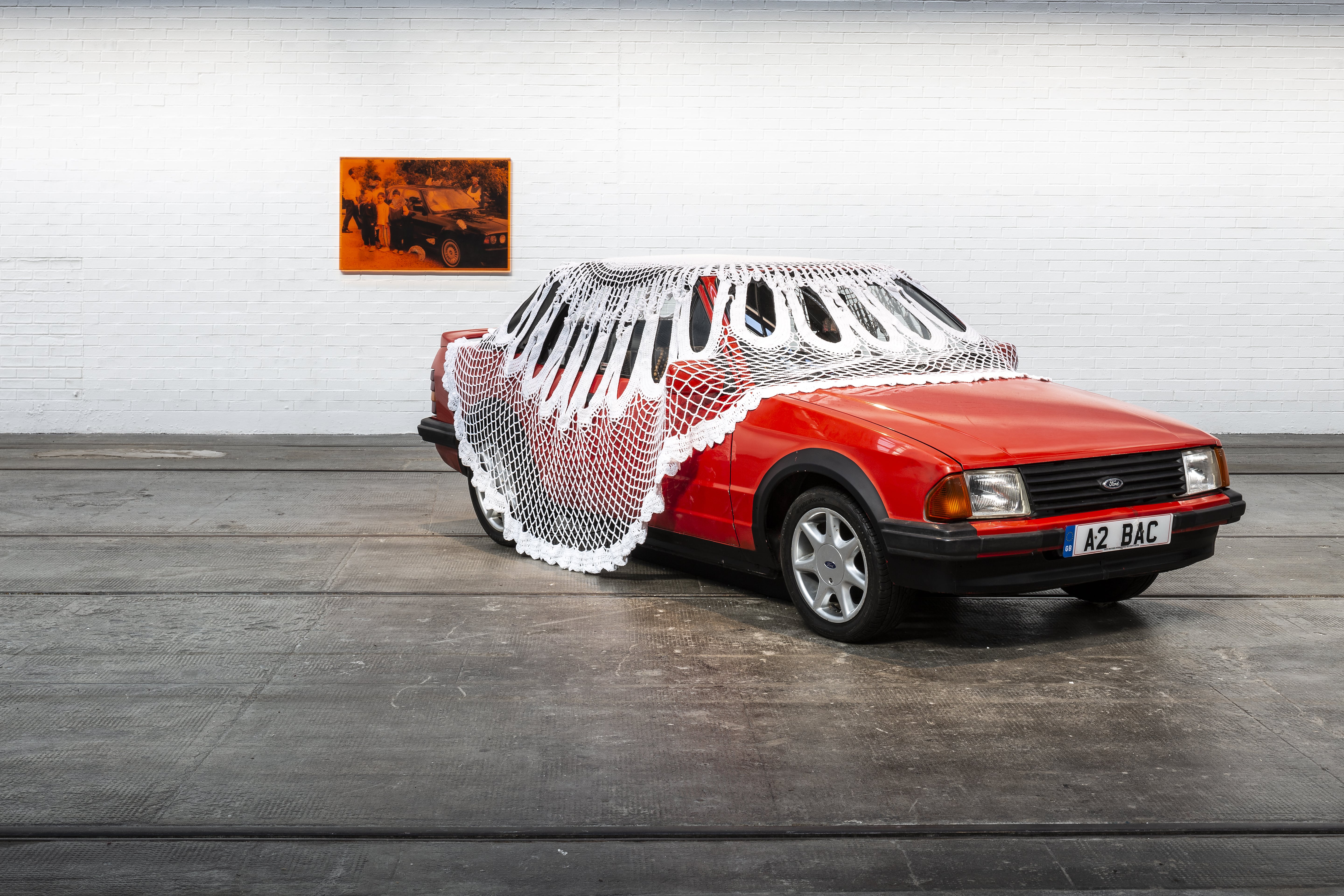 Jasleen Kaur wins the Turner Prize 2024
Jasleen Kaur wins the Turner Prize 2024Jasleen Kaur has won the Turner Prize 2024, recognised for her work which reflects upon everyday objects
By Hannah Silver
-
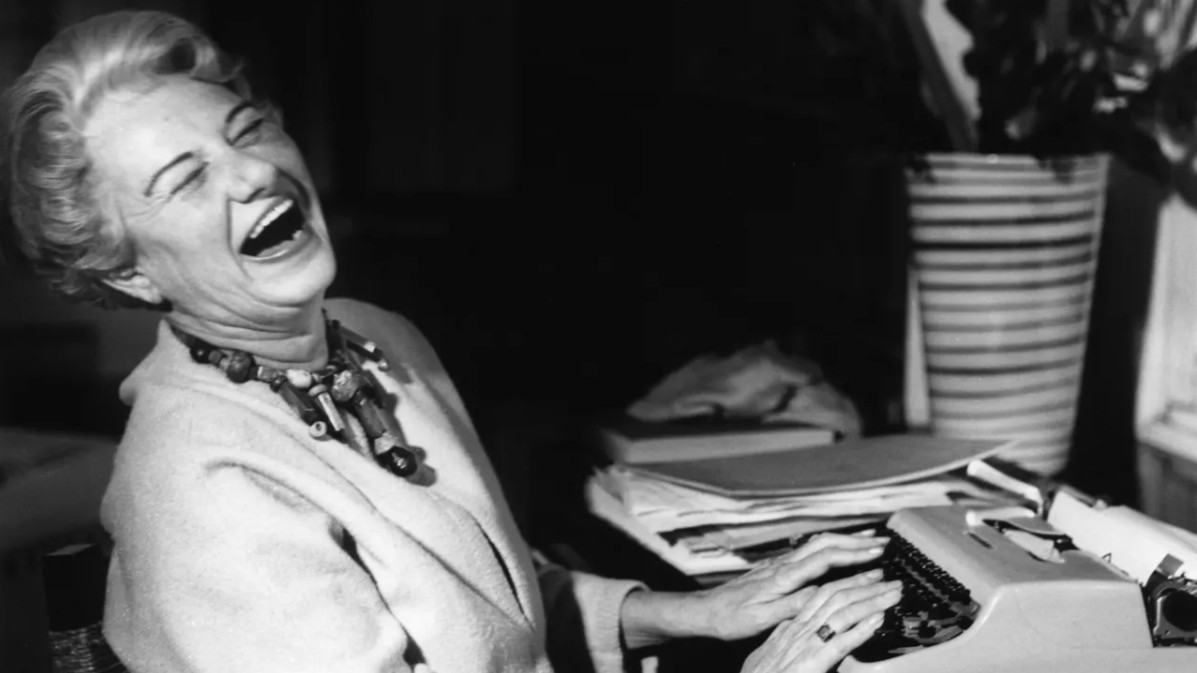 Peggy Guggenheim: ‘My motto was “Buy a picture a day” and I lived up to it’
Peggy Guggenheim: ‘My motto was “Buy a picture a day” and I lived up to it’Five years spent at her Sussex country retreat inspired Peggy Guggenheim to reframe her future, kickstarting one of the most thrilling modern-art collections in history
By Caragh McKay